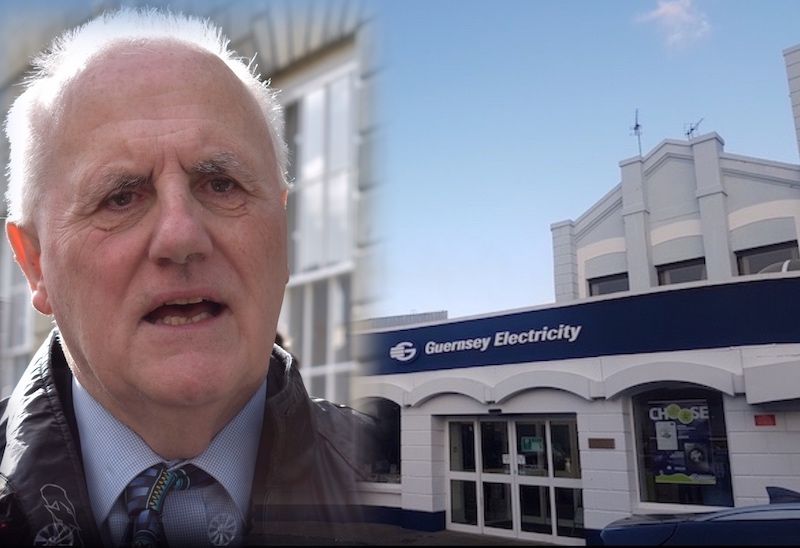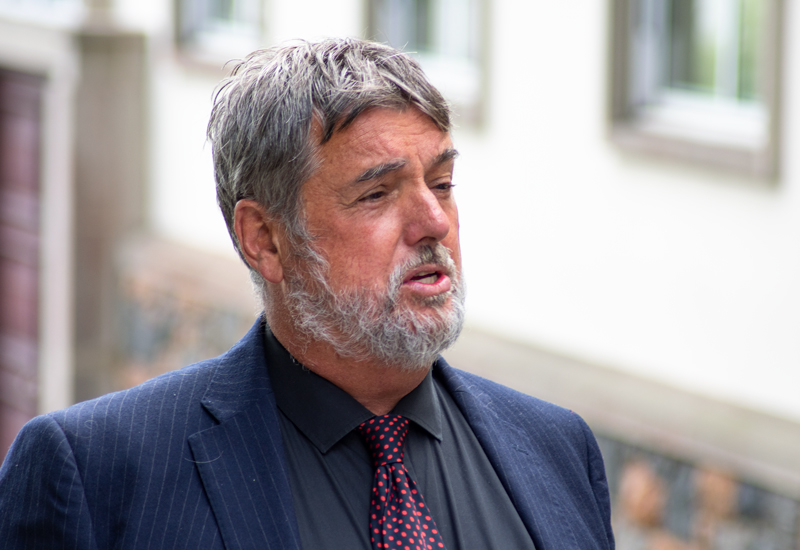


A letter sent to Guernsey Electricity by the Guernsey Competition Regulatory Authority suggests the independent regulator has held up the long-awaited tariff review due to a lack of resources, contradicting recent statements it has made.
The proposal to change the way the States-owned Guernsey Electricity is regulated has proved controversial in some quarters, with States’ Trading Supervisory Board President Peter Roffey decrying the “disinformation and distortion” of the facts that have been perpetuated by some in recent weeks.
The management of GEL say the move to a new licencing framework cannot happen under the current regulatory structure, as the GCRA does not have the resources to commence the necessary review of tariffs and pricing.
Under the proposals, which have been approved in the States, the STSB has been delegated powers to oversee GEL’s tariffs and structure to provide “cost transparency” on the road to “an affordable tariff evolution to facilitate the energy transition.”
The end goal – which the States has committed to in its Energy Policy – is to have competition on a level playing field across a single electricity grid, with prices for customers that accurately reflect the costs of producing that electricity.
The GCRA contested the proposal, arguing that “key facts on which it is based are inaccurate”.
“Guernsey Electricity is a monopoly and was commercialised on the basis that it would be independently regulated. The Authority is aware of the proposal to move price regulation of GEL to the shareholder committee.
“Key facts on which the proposal is based are however inaccurate, in particular the basis for the policy proposal is to allow GEL flexibility to restructure and reconfigure its tariffs. GEL has in fact had the ability to do so for almost a decade and is not currently prevented from doing so under its regulatory price control.
The GCRA continued: “The Authority maintains that the most appropriate means by which consumers and competition are protected in a monopoly context is through independent regulatory oversight of the prices charged by a monopoly which was the basis on which GEL was originally commercialised.”
However, GEL Chief Executive Alan Bates has produced documentation from the GCRA, from 2018, which appears to contradict this statement.
The letter from the regulator stated: “Lack of clarity around the future of electricity regulation has been a feature of the current landscape for some time. Because of that, I do not believe the Competition Authority is in a position to commence a price control review given its current level of resources and the need to ensure the Authority fulfils its duties in the existing law appropriately."
This position was reflected in the speech made by previous STSB President Deputy Peter Ferbrache.
“The GCRA, with considerable respect, was not up to the mark,” he said of his first-hand experience with the regulator. “The GCRA hasn’t done its job and wants £180,000 per annum for not doing its job.”
Deputy Roffey said there is a fundamental imbalance in the way that people are currently charged for their use of electricity.
The standing charges do not cover the costs of the infrastructure, while the ‘unit cost’ of electricity that people pay depending on their usage is higher than it should be.
“The tariff structure hasn’t been able to be changed for years,” said Deputy Roffey. “The tariffs must reflect the costs involved. People are currently paying for their connection to the grid by way of their unit charges.
“That sort of market distortion throws up ludicrous situations.”

Pictured: Deputy Lindsay de Sausmarez was successful with an amendment that closed a potential loophole opened up by the change in regulatory arrangements. It was designed to "stop competitors from setting up a separate competing grid, which would go against the States-agreed policy to create competition on a level playing field sharing the same critical infrastructure."
With more businesses entering the market with a focus on green energy, the need to address this has become more urgent, according to Deputy Roffey.
That is because those who install solar panels are not covering the costs of their back-up supply to the grid through the current standing charges.
“That green energy isn’t free - it’s being paid for by someone else," said Deputy Roffey.
“It’s patently not acceptable that for those of us who are relatively early adopters of renewable technology but still want to maintain a connection to the grid as a back-up, to be cross-subsidised by Mrs Le Page who cannot afford that sort of investment. That is not acceptable and not fair.”
As more islanders embrace renewable energy – something the States has resolved to encourage – this will only increase this disparity, he warned.
The interim arrangements will remain in place until "at least 2023" while Economic Development devises a new regulatory framework.
Before being commercialised in 2002, Guernsey Post and Electricity were regulated by a States board who were politically accountable for keeping prices down.
“This system of regulation is not new,” Deputy Roffey told the States. “We would publish any proposed changes and would employ outside experts to provide assurance of performance against benchmarks.
"That would be paid for by the proposed reduction in the £180,000 licence fee to the GCRA.
“It is quite clearly it is an interim role while the new system of regulation is devised by Economic Development.

Pictured: Deputy Roffey stressed that the competition law remains in place to prevent from "any predatory behaviour” in the electricity market.
Some questions were raised in the States, particularly from those who were hearing, for the first time, how precarious Guernsey Electricity’s financial situation currently is.
Deputy Ferbrache said the company “is at the end of the runway” and needs the tariff restructuring to be progressed as a priority.
“If we are on a cliff edge, why did we not hear about this nine months ago?” asked Deputy Andrea Dudley-Owen.
Deputy John Dyke added: “If it’s code red and we’re at the end of the runway and on the brink of breaching bank covenants, why weren’t we talking about this before?”
Deputy Roffey could not give an explanation for this, instead apologising on behalf of the organisation that its financial pressures had not been made clearer to the States Assembly before now.
He concluded: “I think we all know we have to do this and it is the right thing to do to bridge the gap between our switched-off version of independent regulation, the need to open up the market, re-balance the tariffs and when Economic Development comes forward with a new system for a brave new world.”
Comments
Comments on this story express the views of the commentator only, not Bailiwick Publishing. We are unable to guarantee the accuracy of any of those comments.